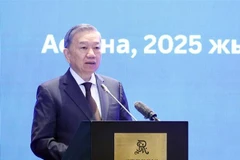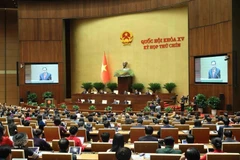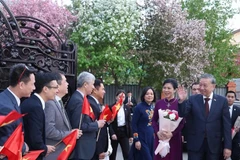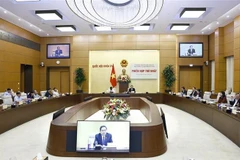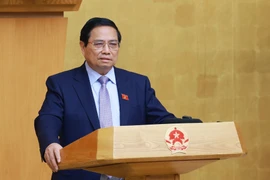Many deputies affirmed that ruralinfrastructure and welfare services upgrade have strategic significancein terms of socio-economics in the immediate and long-term as the regionensures food security and sustainable development.
NA DeputyNguyen Quoc Cuong from northern Bac Giang province said that investmentin agriculture and rural areas now stands at just over 6 percent, lowerthan the rate of 13.85 percent 10 years ago, while agriculturecontributes up to 20 percent of the country’s GDP.
Cuong proposedthe National Assembly adjust investment law and policy, renovate themanagement of investment into rural agriculture and widely implement BOT(build-operate-transfer) projects for rural modernisation.
Programmeson building rural infrastructure, poverty reduction, vocationaltraining and job generation, together with rural and agriculturaldevelopment programmes, should be combined with economic restructure toreorganise production for each region and improve people’s livingconditions, he said.
NA deputies said the reduction of publicinvestment is an important inflation control solution but needs a focusto ensure macro-economic stability and reach the target of economicgrowth of 6.5-7 percent in the 2011-2015 period alongside a consumerprice index of 5-7 percent by 2015.
Additionally, economicrestructure needs to focus on investment restructure, State-ownedenterprise restructure and financial market restructure with prioritygiven to restructuring the commercial bank system.
On socialwelfare policy, NA deputies suggested the five-year socio-economicdevelopment plan needs to focus on vocational training and jobgeneration and employment demand, the implementation of the medicalinsurance policy for all people and a review of support policies forpoor people and districts.
NA deputies also debated other issues such as healthcare, education and traffic safety./.










